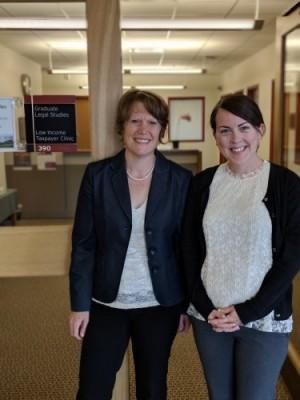Making Taxes Less Taxing
The University of Denver's Low Income Taxpayer Clinic helps those saddled with unpayable debts
Tax Day is still a couple of weeks away, but even thinking about the looming deadline sends many down the path of procrastination. While most of us just have to worry about filing our tax returns, some are not so lucky. For those who owe the Internal Revenue Service back taxes, debt can climb into the hundreds of thousands of dollars.
That’s where the University of Denver’s Low Income Taxpayer Clinic (LITC) steps in. One of the first clinics of its kind created in the U.S., the LITC has been open since 1999. It is now housed within the Sturm College of Law.
“The history of these clinics is pretty interesting,” says Erin Stearns, director of the LITC and assistant professor of the practice of taxation. “In 1998, Congress passed a big revenue restructuring act in response to some of the IRS’s abusive practices. There were a number of reforms put in place—including funding for these clinics—as a measure to reform the IRS and help those who were underserved.”
Stearns and Samantha Galvin, assistant director of LITC, along with roughly a dozen student volunteers each quarter, are able to complete about 200 cases each year. “We focus on resolving controversies with the IRS,” Galvin explains. “If something went wrong after someone filed their taxes in the past, or if they’re in a situation where they owe a lot and can’t pay, that’s where we can help them.”
While the LITC helps clients who are challenged by the IRS on a variety of different fronts, one of the most common problems Stearns and Galvin see is improper use of the Earned Income Tax Credit, which is available mainly to taxpayers who have children. “The rules can be complicated—people sometimes claim children that they’re really not related to, since there’s a legal test that defines the relationship,” Galvin says. “They don’t understand the proof that they need to send the IRS when they challenge it.”








